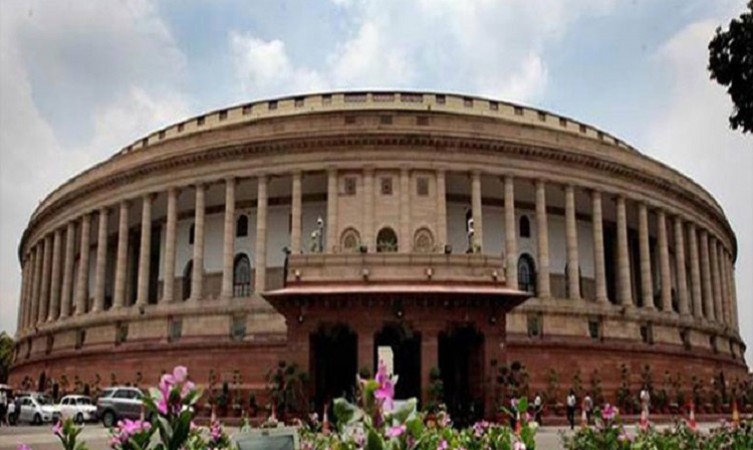
NEW DELHI: The monsoon session of Parliament, which sets to conclude on Friday after a span of 16 days, was marked by turbulence due to numerous disruptions and intense debates centered around the issues of Manipur violence and the Delhi Ordinance Bill. Additionally, the session also saw an unsuccessful attempt at a vote of no confidence. Let's take a retrospective glance at the events that transpired over the past few days:
Manipur Violence: A significant portion of the monsoon session was marred by interruptions caused by opposition parties, collectively under the banner of "INDIA," who called for a thorough discourse on the Manipur violence issue. They demanded a statement from Prime Minister Narendra Modi regarding the matter. Meanwhile, the government conveyed its willingness for discussion but insisted that the discussion should be led by Amit Shah rather than Prime Minister Modi.
The No ConfidenceMotion: Gaurav Gogoi from the Congress party initiated a motion of no confidence against the government led by Prime Minister Modi, citing concerns related to the Manipur situation. Members of INDIA, representing the floor of the Parliament, lent their support to this motion. From August 8 to 10, the Parliament witnessed intense debates featuring prominent figures such as Amit Shah, Rahul Gandhi, Smriti Irani, Gaurav Gogoi, and others. On August 10, Prime Minister Modi addressed the motion.
Prime Minister Modi's Response to the Motion of No Confidence:
In his response, Prime Minister Modi assured that efforts were underway to restore peace in Manipur. He stated, "Both the state and central governments are making every possible effort to ensure the harshest punishment for the accused. I want to assure the citizens that tranquility will be reinstated in Manipur in the near future."
He went on to emphasize that the entire nation stands in solidarity with the people of Manipur. He added, "I want to convey to the people of Manipur, including the women and daughters, that the entire nation supports you."
Prime Minister Modi urged the Parliament members not to politicize the Manipur issue. He requested, "I appeal to the MPs of the Parliament to recognize the significance of this moment. Let's move forward collectively. Our country has faced more grave challenges in the past, but we've always found ways to collaborate. Let's unite. Build trust with the people of Manipur. Let's refrain from exploiting Manipur for political gains."
The defeat of the Motion of No Confidence:
On Thursday, the motion of no confidence against Prime Minister Modi was defeated following a three-day debate. As the opposition walked out during the voting process, Modi criticized them, stating, "Those who lack faith in democracy are quick to criticize without the patience to listen to counterarguments."
Rahul Gandhi's Return to Parliament:
Following a suspension of Rahul Gandhi's conviction in a defamation case related to remarks about the Modi surname, he was able to return to Parliament and prepare for the upcoming national elections. In the wake of this development, Lok Sabha Speaker Om Birla permitted Gandhi to rejoin the Parliament.
Rahul Gandhi took the lead in attacking the government in Parliament, specifically targeting Prime Minister Modi's perceived inaction regarding the tragic Manipur violence. During his address to fellow lawmakers, Gandhi accused Modi of "betraying Mother India."
Delhi Ordinance Bill: On the evening of August 7, the Rajya Sabha passed the Delhi Ordinance Bill through a voice vote. In response, Delhi Chief Minister Arvind Kejriwal expressed his discontent, labeling it a "dark day" for Indian democracy and asserting that the legislation would hinder the functioning of the duly elected Delhi government.
Digital Personal Data Protection Bill: On Wednesday, Parliament granted approval for the Digital Personal Data Protection Bill, which introduces a range of compliance prerequisites for the collection and processing of personal data. It also outlines provisions for penalties of up to ₹250 crore in the event of a data breach.
The government anticipates implementing the Digital Personal Data Protection Act of 2023 within ten months. The Lok Sabha gave its endorsement to the Bill on August 7, and with the Rajya Sabha's concurrence on Wednesday, the parliamentary approval process has been successfully concluded.